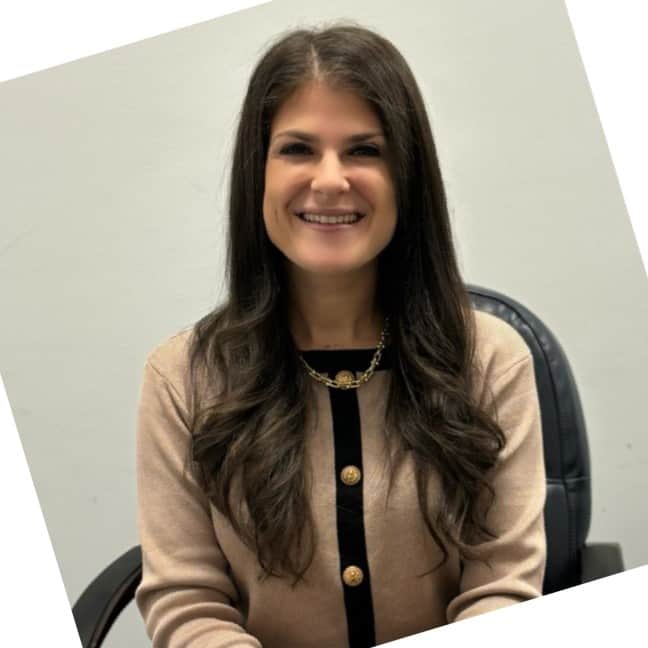How Ecstasy Is Used?
Ecstasy combines hallucinogenic properties and powerful stimulant properties, and like many other drugs, it works on the brain’s reward system. Users experience a “body high” that makes the sense of touch particularly pleasurable and creates visual distortions. It also comes with feelings of empathy, connection, and emotional warmth.
According to the Drug Enforcement Administration (DEA), MDMA and ecstasy are abused in multiple forms. They are often ingested by swallowing gel capsules, commonly referred to as “Molly,” which are typically marketed as pure MDMA. Users may also take MDMA in the form of pills or tablets, which often come in various colors and are imprinted with logos to make them more appealing.
In addition to these forms, MDMA can be found in a powdered or crystalline form, which is sometimes dissolved in liquid and consumed. Some users crush the tablets or crystals and snort the powder, leading to a quicker onset of effects but with more intense and potentially dangerous experiences.
While less common, MDMA is occasionally smoked, though this method is not as prevalent as the others. These various methods of abuse highlight the versatile nature of how MDMA can be consumed, contributing to its widespread misuse.
We’ve Helped Thousands of Individuals Overcome Drug and Alcohol Addiction
Short-term and Long-term Effects Of Ecstasy
Understanding the effects of ecstasy on the body and mind is crucial for anyone considering its use or seeking treatment for ecstasy addiction. The drug’s impact can be observed in both the short and the long term, each carrying its specific risks and consequences. So, how does ecstasy affect the body and mind?
Short-term Effects
- Euphoria and Increased Sociability: Users often experience heightened mood and a greater desire to communicate and connect with others.
- Heightened Sensory Perception: Enhanced sensitivity to light, sound, and touch is common.
- Increased Energy and Stamina: Users may feel more energetic and capable of extended physical activity.
- Jaw Clenching and Teeth Grinding: Many users report involuntary jaw movements and teeth grinding.
- Dehydration and Hyperthermia: Due to increased physical activity and the drug’s effects, there is a significant risk of dehydration and overheating.
Long-term Effects
- Cognitive Deficits: Prolonged use can lead to memory loss, impaired cognitive function, and difficulty concentrating.
- Depression and Anxiety: Long-term users often struggle with mood disorders, such as chronic depression and increased anxiety.
- Cardiovascular Issues: Persistent use can cause long-term and even permanent damage to the heart and blood vessels.
- Kidney Failure: Kidney failure can be a severe outcome of ecstasy/MDMA abuse, as the drug can cause dehydration and hyperthermia, leading to muscle breakdown and subsequent renal damage.
- Addiction and Dependency: Regular consumption increases the risk of developing an ecstasy addiction, making it challenging to stop using it without help from a medical professional or an ecstasy addiction treatment facility.
- Reduced Serotonin Levels: According to the MDMA abuse research report by the National Institute on Drug Abuse, ecstasy can deplete serotonin levels in the brain, leading to mood imbalances and emotional instability.
- Death: Ecstasy’s stimulant effects caused increased heart rate, body temperature, and blood pressure. Individuals with pre-existing heart conditions are at significant risk, as this can lead to heart attack, stroke, or fatal arrhythmias.
Recognizing these effects is the first step toward understanding the gravity of Ecstasy addiction and the importance of finding the right ecstasy addiction treatment centers.
Signs of MDMA/Ecstasy Addiction
Recognizing the symptoms of ecstasy addiction can help in identifying individuals who may need support and intervention. Here are key indicators of MDMA use disorder:
Behavioral Signs
- Craving for the Drug: An intense desire or urge to use MDMA, often leading to compulsive use.
- Neglecting Responsibilities: Not fulfilling work, school, or home obligations due to drug use.
- Social Isolation: Withdrawing from family members and friends, preferring to spend time alone or with other users.
- Engaging in Risky Behaviors: Taking risky actions, such as driving under the influence or having unprotected sex.
Physical Signs of Ecstasy Substance Use Disorders
- Increased Tolerance: Needing larger doses of MDMA to achieve the same effects.
- Withdrawal Symptoms: Experiencing physical and psychological symptoms when not using the drug.
- Changes in Appearance: Noticeable weight loss, poor hygiene, and unusual grooming habits.
Psychological Signs
- Obsessive Thoughts About MDMA: Frequently thinking about using the drug or planning the subsequent use (sometimes before even taking the first dose).
- Mood Swings: Experiencing extreme highs and lows, often related to the drug’s effects.
- Paranoia and Anxiety: Developing intense negative feelings of mistrust or fear, particularly in the absence of using the drug.
Lifestyle Changes
- Financial Problems: Spending a significant amount of money on the drug, often leading to financial issues.
- Deterioration of Relationships: Disputes or breakups with loved ones due to drug-related behaviors.
- Legal Issues: Engaging in illegal activities to obtain the drug or facing arrests and other legal consequences.
Recognizing the signs of MDMA abuse is crucial for early intervention and MDMA addiction treatment. By understanding these indicators, individuals and their loved ones can take proactive steps to seek treatment for ecstasy addiction.
Recovery Starts at Our Drug and Alcohol Rehab by Requesting a Call
"*" indicates required fields
Ecstasy Withdrawal Symptoms
When individuals stop using ecstasy, they often experience a range of substance withdrawal symptoms. These symptoms can vary in intensity and duration, but several are commonly reported. Some of the most commonly reported symptoms are:
- Feeling Depressed
- Feeling Tired or Weak
- Changes in Appetite
- Having Trouble Concentrating
- Feeling Anxious, Restless, or Irritable
The least reported symptoms include:
- Running Eyes or Nose
- Seizures
Other reported symptoms include:
- Trembling or Twitching
- Have Vivid, Unpleasant Dreams
Understanding these common and less common withdrawal symptoms is crucial for providing appropriate support and treatment to individuals recovering from ecstasy use.
Right Path Recovery’s Approach To MDMA and Ecstasy Addiction Treatment
At Right Path Recovery, we have developed a comprehensive, compassionate, and personalized approach to treating MDMA/ecstasy addiction. Our multidisciplinary team of experts combines evidence-based therapies, medical support, and holistic treatment methods to promote lasting recovery. Here are the treatment options we offer to help with a substance use disorder:
Detox as a Treatment for Ecstasy Addiction
The first step in treating MDMA and ecstasy addiction is ecstasy detox. Right Path Recovery conducts a thorough initial assessment to understand the extent of drug use and any co-existing medical conditions. Stabilization is achieved by managing withdrawal symptoms through the use of medication, if available, ensuring the detox and recovery process is as comfortable and safe as possible.
Continuous monitoring can counteract severe withdrawal symptoms like anxiety and paranoia, ultimately laying the groundwork for the subsequent MDMA addiction treatment phases.
Residential Treatment for Ecstasy Abuse
Residential ecstasy addiction treatment offers a structured environment where patients can focus entirely on their recovery. By removing individuals from environments where MDMA and ecstasy are easily accessible, the chances of relapse decrease significantly.
Patients engage in one-on-one and group counseling sessions, often utilizing cognitive behavioral therapy, gaining valuable skills for long-term sobriety.
Partial Hospitalization Program (PHP) to Treat MDMA Addiction
PHP serves as an intermediary step between residential care and outpatient MDMA addiction treatment. Individuals participate in intensive therapy during the day but return home in the evenings. This flexibility allows patients to begin reintegrating into daily life while still receiving strong clinical support.
Our protocols ensure a seamless transition, gradually reducing the level of care while continuing to provide a support network. PHP helps clients practice their new coping strategies in a safe environment before full reintegration into their everyday lives.
Dual Diagnosis
Often, addiction to MDMA/ecstasy co-exists with mental health issues such as depression or anxiety. Dual diagnosis addresses both conditions simultaneously, increasing the likelihood of successful recovery. Therapy isn’t just focused on substance abuse but also aims to stabilize mood disorders and other psychological issues, treating the underlying issues of the addiction.
Aftercare for Substance Abuse
Aftercare is crucial for maintaining sobriety. Right Path Recovery links clients to support groups that encourage long-term engagement and accountability. These groups offer a community where individuals can continue to share their experiences and receive ongoing emotional support.
Aftercare plans also include regular check-ins and follow-up sessions. Continuous guidance helps clients navigate the challenges that come with daily life without reverting to substance use.
Relapse Prevention as Part of MDMA Addiction Treatment
Relapse prevention focuses on equipping individuals with the skills necessary to avoid returning to drug use. This treatment for ecstasy addiction includes stress management, learning coping mechanisms, and implementing techniques to handle triggers.
Clients are encouraged to maintain strong support systems, whether through family, friends, or support groups. Having a reliable network can make a significant difference in resisting the urge to use again and achieving lasting recovery.
With the right combination of individual and family therapy, support, and coping strategies, long-term recovery from MDMA /ecstasy addiction is entirely achievable.
Contact Right Path Recovery Today For Help With Ecstasy Drug Abuse
The negative effects of using MDMA, often seen as a party drug that isn’t very dangerous, can have severe repercussions on a person’s overall health. Chronic use can lead to significant mental health issues, cardiovascular problems, and other long-lasting damage.
Treatment for ecstasy works by addressing both the physical and psychological aspects of addiction, providing a comprehensive approach that promotes long-term recovery. At Right Path Recovery, we are committed to helping you or your loved one overcome the grip of MDMA abuse through proven therapeutic methods and strong support systems.
Don’t wait until it’s too late. Contact us today to start your journey to a healthier, drug-free life. Our experienced team of professionals is here to guide you every step of the way, ensuring you receive the care and support needed for a successful recovery. Reach out to us now for more information and take the first step on your way to a brighter future.

Insurance Can Cover up to 100% of The Costs of Addiction Treatment and Mental Health Care
Did you know that insurance can cover up to 100% of the costs of addiction treatment and mental health care? Our addiction treatment center accepts most insurance plans. For a free insurance benefits check complete our confidential insurance verification form by clicking the link below.













